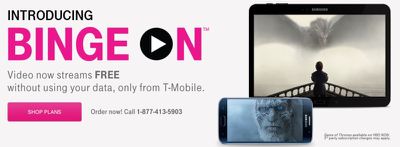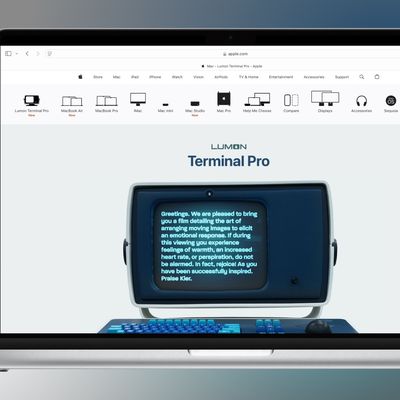YouTube this morning provided a statement to The Wall Street Journal criticizing T-Mobile's recently introduced Binge On program and accusing T-Mobile of throttling all video and not just the video of its Binge On partners.
Launched in November, Binge On is a T-Mobile video service that allows T-Mobile subscribers to watch video from content partners without it counting against customer data plans. The catch is that it uses a proprietary data compression algorithm to stream the video in 480p. While Binge On can be disabled, using the feature requires partner video to be watched in 480p, which T-Mobile calls "DVD quality."

T-Mobile has 24 partners for Binge On, including Netflix, HBO, Sling TV, and more, but YouTube has not signed up to participate. Despite the fact that YouTube is not partnering with T-Mobile, the company says its video streams are still being downgraded to 480p quality, a problem YouTube would like fixed.
YouTube, which is owned by Alphabet Inc., said T-Mobile is effectively throttling, or degrading, its traffic. "Reducing data charges can be good for users, but it doesn't justify throttling all video services, especially without explicit user consent," a YouTube spokesman said.
The Internet Association also backed up YouTube's claim, stating that T-Mobile's Binge On service "appears to involve the throttling of all video traffic, across all data plans, regardless of network congestion."
T-Mobile did not address YouTube's complaints when questioned by The Wall Street Journal, instead giving a blanket statement about Binge On. Customers love "free streaming video that never hits their data bucket" and "the quality of their video experience and the complete control they have."
The United States Federal Communications Commission is looking into Binge On along with free data services from AT&T and Comcast. While there is no formal inquiry at this time, the FCC has asked the three companies to answer some questions about their free data practices. YouTube's accusations could further spark the FCC's interest, especially as some consumer advocates believe that programs like Binge On violate net neutrality rules.






















